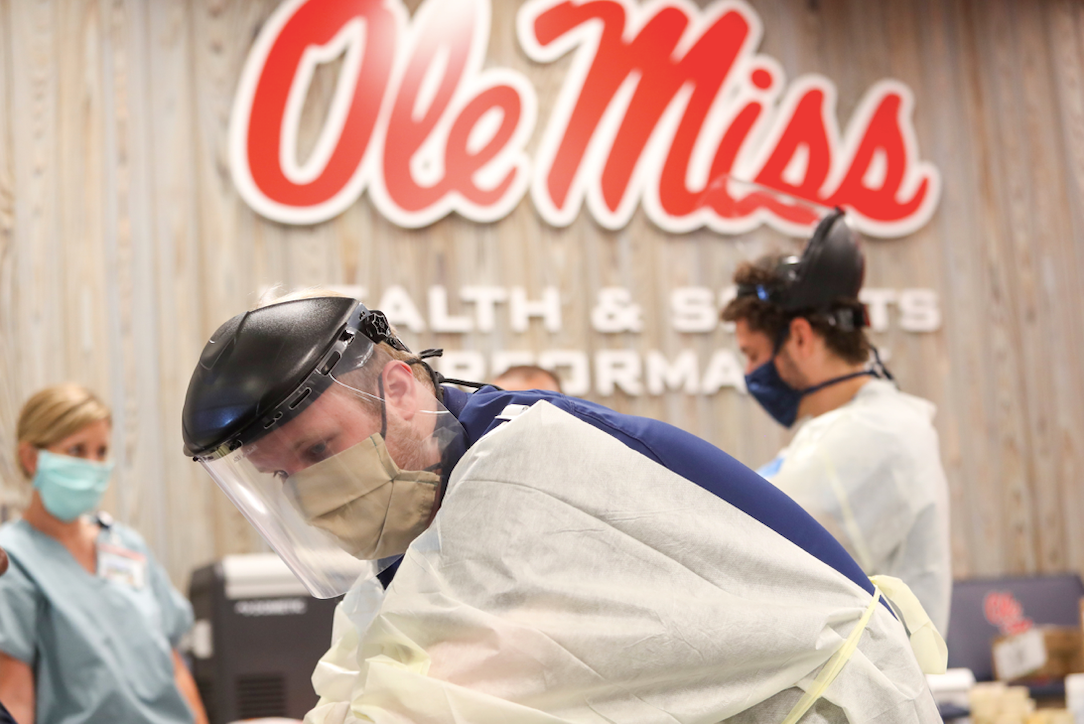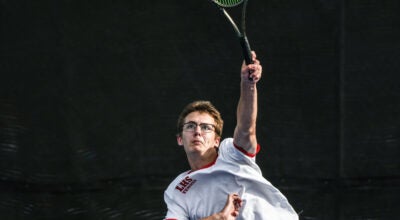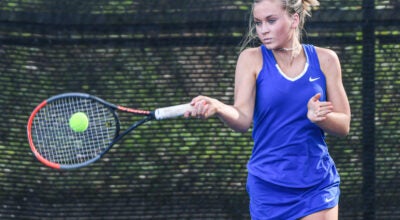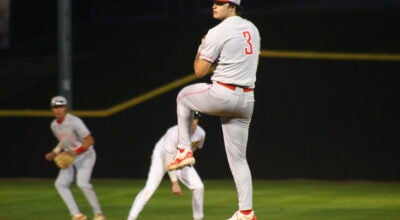SEC announces COVID-19 protocols for fall sports
Published 11:38 am Tuesday, August 11, 2020

- Ole Miss football student-athletes were screened and tested for COVID-19 upon their return to The Manning Center on the Ole Miss campus on June 1st, 2020. The SEC announced their COVID-19 protocols last Friday for their fall sports, including football. (Joshua McCoy/Ole Miss Athletics.)
The status of a fall collegiate sports season is still up in the air nationally, but the Southeastern Conference is still planning to move forward with their fall sports and announced the COVID-19 protocols and guidelines that must be followed.
The league revealed their initial medical protocols last Friday for all of their fall sports to follow. Those sports include football, women’s soccer, women’s volleyball and cross-country. The protocols stay fairly uniform but do differ in certain areas to become more sport-specific.
The protocols were recommended by the SEC’s Return to Activity and Medical Guidance Task Force.
“Our Medical Task Force is producing an effective strategy for testing and monitoring, which complements the vigilant day-to-day efforts of our campuses to establish and maintain healthy environments in which our student-athletes can train and compete,” said SEC Commissioner Greg Sankey. “Our health experts have guided us though each stage of preparation for the safe return of activity and, together with the medical staffs embedded within our athletics programs, we will continue to monitor developments around the virus and evolve our plan to meet the health needs of our student-athletes.”
When it comes to testing procedures, the SEC will coordinate centralized testing through a third-party provider to ensure there is consistency in surveillance and pre-competition testing.
For football, players and others in direct contact with the program will receive a Polymerase chain reaction (PCR) surveillance test at least twice weekly during the season, typically six days and three days prior to a game. A PCR test is the current standard testing method for COVID-19.
Soccer and volleyball programs will be administered a PCR test at least twice weekly, with one given three days ahead of a match being played. Cross-country athletes will be administered a test at least once per week with the test to occur at least three days ahead of a meet.
For masks, the protocols are uniform for football, soccer and volleyball. All coaches, staff and non-competing personnel will be required to wear a mask on the sideline and social distancing will be employed as much as possible.
Masks are required for cross-country athletes at the starting line, but can be removed when proper distancing is achieved by each runner. Coaches and staff associated with cross-country programs must practice social distancing where possible and required to wear a mask throughout the duration of the meet.
Those who test positive for COVID-19 will be required to follow quarantine protocols. A student-athlete who tests positive but is asymptomatic must isolate for 10 days from the date of the positive test. If that person becomes symptomatic, which also requires a 10-day isolation period they will not be allowed to return to activity until at least 24 hours have passed since they last had a fever without the use of any medication and symptoms improve.
Once a player returns from isolation, they must have a cardiac evaluation performed along with clearance from a team doctor and adhere to an appropriate period of acclimation following the period of inactivity.
Anyone found to have had prolonged contact with someone who tested positive during the period of infectivity, which is two days prior to symptom onset until the time of isolation, will be considered a high-risk contact. Prolonged contact is defined as being around an infected person for more than 15 minutes and within six feet of them during that time.
Those considered a high-risk contact will quarantine for 14 days.
Each school will be required to designate a COVID-19 Protocol Oversight Officer who will be responsible for education and ensuring the school is compliant with the SEC’s guidelines and protocols.
The full SEC Return to Activity and Medical Guidance Task Force Requirements for COVID-19 Management of Fall Sports can be found on the SEC’s website.





